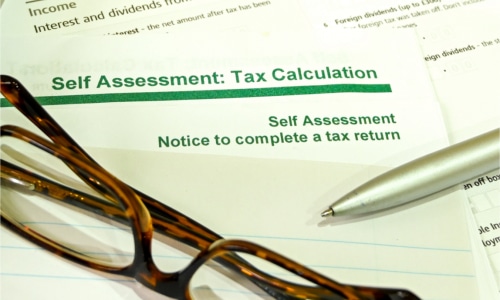Why Is HMRC Asking Me To File A Tax Return? Do I need to file a Self Assessment?
The onus to complex a tax return each year and paying any tax due for that year is on the individual. It is your responsibility to tell HM Revenue and Customs (HMRC) if you need to complete a tax return – this process is called “Self-Assessment”. Simply, if you receive income or capital gains without tax automatically deducted via your employer’s payroll system, you will need to report this under a self assessment. Individuals in the following categories need to register online with HMRC to obtain an Unique Taxpayer Reference Number (UTR) and may be liable for a Self Assessment tax return:
- Self-employed individuals with income not within the annual £1,000 trading allowance, including Locum doctors.
- Directors of limited companies with an income that has not been taxed
- Partners working in a partnership or LLP
- Individuals with expenses claim over £2,500 in a year
- Most landlords or those receiving property income
- A trustee or the executor of an estate
- Individuals in receipt of investment income such as dividends
- An employee or pensioner who earned £100,000 or more last tax year.
- Individuals who pay the High Income Child Benefit charge because they claim child benefit – yet their adjusted net income or their partner’s income is over £50,000.
- Individuals with other sources of untaxed income over £2,500
- Individuals making chargeable capital disposals of property, shares or other assets
- Individuals who have tax due at the end of the year that cannot be collected via PAYE coding notice in a later year.
- Individuals who receive state pension payments as their solo source of income that exceed personal allowance.
- Individuals receiving a P800 form from HMRC stating they didn’t pay enough tax last year – and the outstanding sum has not been paid.
- Individuals required to pay Capital Gains Tax on profits from selling things like shares or a second home
- A religious minister from any denomination
- Non-UK resident individuals who have taxable income in the UK, including landlords
- Individuals wishing to reclaim higher rate or additional rate tax relief on their private pension contributions or charitable donations, as well as relief for venture capital schemes.
- UK residents with overseas sources of income or gains on which UK tax is due, or non-UK domiciled individuals wishing to claim the remittance basis of taxation.
For those still unsure if they need to complete a Self-Assessment tax return, use the HMRC Self-Assessment tool to confirm.
Self Assessment Important Dates, Deadlines & Fines
Understanding the HMRC Self Assessment tax dates is important to avoid incurring fines for late filing. Some deadlines to consider are:
- 5th October – Self-Assessment registration: Tell HMRC that you are required to submit a tax return the following year.
- 31st October – Submit paper tax returns: Paper tax return must arrive at HMRC before midnight.
- 30th December – Opt into HMRC’s PAYE service – Choose to have overdue tax collected via PAYE for those who file tax returns online and have earnings taxed under PAYE. This only applies for those whose tax bill is below £3,000, and who agree to file an online return by this date.
- 31st January – Submit an online tax returns: Submit Self-Assessment tax return online by midnight.
- 31st July – First Payment on account: The deadline for the first payment on account – For those who pay their tax through the payment on account.
Penalties or interest charges may be incurred when tax returns are filed late. Potential fines can be estimated here and include:
- One day late – £100 for one day after the deadline
- Three months late – £10 for each additional day (capped at 90 days), plus a £100 initial fine – a maximum of £1,000
- Six months late – £300 or 5% of the tax due (whichever is higher), on top of the previous penalties
- Twelve months late – An additional £300 fine, or 5% of the tax due, plus the previous penalties. In the most serious cases, you could be fined 100% of the tax due.
Register For HMRC Self Assessment With Ramsay Brown
While you can register online and by post, at Ramsay Brown, we understand that HMRC Self Assessment can be a daunting and time-consuming task for individuals and businesses. That’s why we offer professional services to help you with your self-assessment needs.
Our team of experienced tax professionals can guide you through the self-assessment process, ensuring that you complete your tax returns accurately and on time. We can help you to identify any tax deductions and reliefs that you may be entitled to, which can reduce your tax bill.
Our services include tax return preparation, submission, and follow-up with HMRC, giving you peace of mind that your tax affairs are in order. We can also provide advice and guidance on tax planning, helping you to minimise your tax liabilities and maximise your financial resources.
Working with Ramsay Brown saves time and effort, allowing you to focus on your business or personal priorities. You can trust us to handle your self-assessment needs professionally and efficiently, giving you the confidence that your tax affairs are compliant with HMRC regulations.
Contact us today to learn how we can help you navigate the complex world of tax and compliance.


